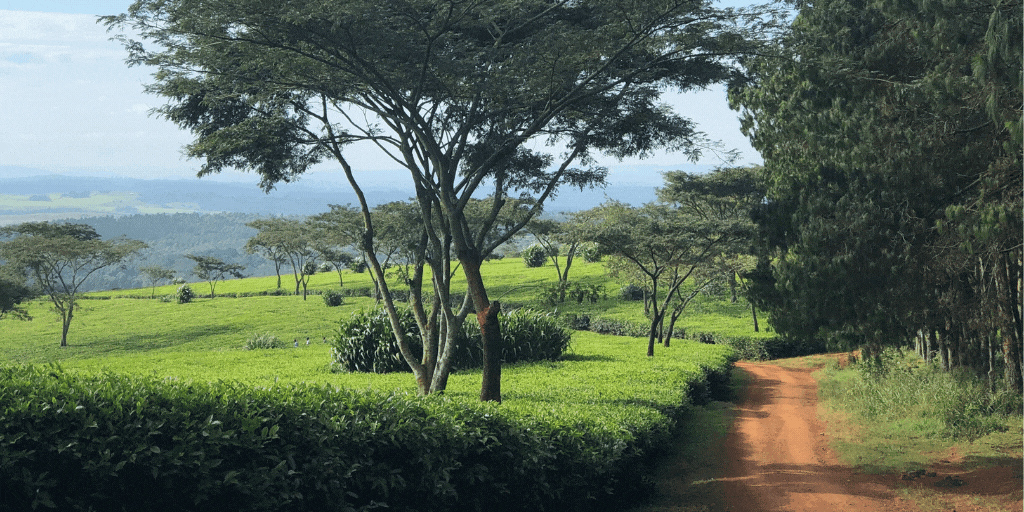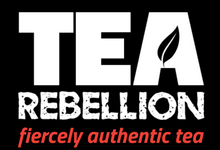
Tea adventures from the warm heart of Africa
This year I visited Satemwa - our Malawian tea partner and maker of nine of our teas. This tea travel adventure was first booked for 2020 – cancelled and then postponed again for another year due to COVID-19. For Tea Rebellion, our partnership with Satemwa is unique in many ways; it's the largest of our partner farms with 980 hectares under tea production and has the highest number of tea workers with up to 2,500 in the peak season.
Malawi is also by far the least developed and poorest of all the countries we buy tea from. The country's average monthly income was just USD64 per month in 2021. Malawi faces exponential population growth, a pegged USD exchange rate and a landlocked geography. COVID has further accelerated excessive use of natural assets through overfishing and deforestation. This is impacting the sustainability of its natural treasures such as Lake Malawi and Mount Mulanje.
The African tea frontier
Most of the worlds’ tea production is produced using the Cut, Tear, Curl (CTC) method that was introduced in the 1930s in Assam. This method has quality and grading criteria that are very specific. Most of Satemwa’s leaves are used for this type of production and blended as a filler tea with other black teas from India, Sri Lanka and Kenya. However, the price achieved on the Malawi auctions is low for this standardized tea product that still accounts for more than 80% percent of the world tea market. Current prices achieved for Malawian CTC tea range from USD1.5-2 per kg.
Recognizing the commodity trap for tea, Satemwa diversified by adding a specialty tea program (i.e. orthodox full leaf production of tea and herbals) in 2006. This program has synergies with the existing production – the same tea bushes are used for both operations – but that’s where the similarities end. The specialty tea program uses specialty trained pluckers, different wilting trays, a separate processing facility and distinct dryer. It also has an entirely different type of buyer including specialty tea brands such as Tea Rebellion and premium restaurants.
It's these differentiated buyers that came down to Satemwa to explore, learn, taste and discuss current issues in a 4-day tea culture & production educational program. Satemwa is set up for hosting visitors so we stayed on the farm at Chawani Lodge while enjoying the 4-day tea education action-packed program:
- Day 1: Tea nursery & vegetative propagation, smallholder program overview & visit of smallholder fields. CTC green leaf receiving, wilting and processing and tasting of speciality teas
- Day 2: Hand plucking of Thyolo and Byumbwe varieties & spreading in wilting trays. Visit to Satemwa school. Trip to Mulanje to the African Tea Research Centre to understand plant breeding and agronomic research.
- Day 3: Hand rolling & brewing of fresh leaves and leaves in mid processing, hand rolling of Zomba Pearls. Visit of Blantyre market
- Day 4: Coffee program (nursery, harvesting, processing), followed by Coffee tasting.
Bracing for an uncertain tea future
Satemwa is a tea jewel for Malawi and for Africa. Complex crafted teas like the Zomba Pearls, Misty Oolongs, guava infused black tea such as the Thyolo Moto and its African Pu-erh give evidence to the creativity and end-to-end attention on quality from pluckers to tea masters. Satemwa creates sustainable incomes for up to 2500 people in the high season and runs a successful smallholder marketing and capability building program on the side.
And yet, even for Satemwa the future in tea is uncertain and full of challenges. Due to declining prices for CTC teas (recently increased production of Kenyan teas has exacerbated the general price pressure on this commoditized market) some other Malawian tea estates are deciding to switch land use to Macadamia nuts and away from tea. Most CTC tea from Malawi is used as a “filler” tea to complement other black notes and create the black teas on our grocery shelves. This makes it extremely challenging to obtain a sustainable price at Malawi's weekly auctions. While the Malawi 2020 program has successfully increased focus on living wages and living income throughout Malawi, it seems to have failed to improve value chain performance from an auction price perspective.
Decarbonizing tea through nature-based climate solutions
Climate change is leading to shorter seasons, more drought and higher temperatures creating a risk for growers, tea buyers and tea drinkers. The effects of this are real in Malawi and the British government funded Women's Economic Empowerment (WEFF) program has recently carried out research on the gender implications of climate change in Malawi in light of our global net zero commitments. There is a need to quickly implement on-farm measures to reduce climate related risk. Conversion to organic is a timely opportunity as conventional fertilizer prices are high due to the Ukraine war. Furthermore, as stewards of land, tea farmers are uniquely placed to create (and get rewarded for) nature-based climate solutions.
Satemwa is experimenting with organic transition, composting, tree shading, sustainable forestry together with continued investment in specialty tea and herbal teas grown by smallholders.
As a transparent, farm-direct tea buyer, we are committed to build origin and quality awareness for Malawian teas. Yet the scale of change needed requires traditional CTC buyers to help shift outdated CTC quality criteria and work with tea farms in true, multi-year partnership to decarbonize through climate solutions. We are calling on all traditional tea buyers to rise to this challenge. Your thoughts on our view of this challenge are most welcome!
